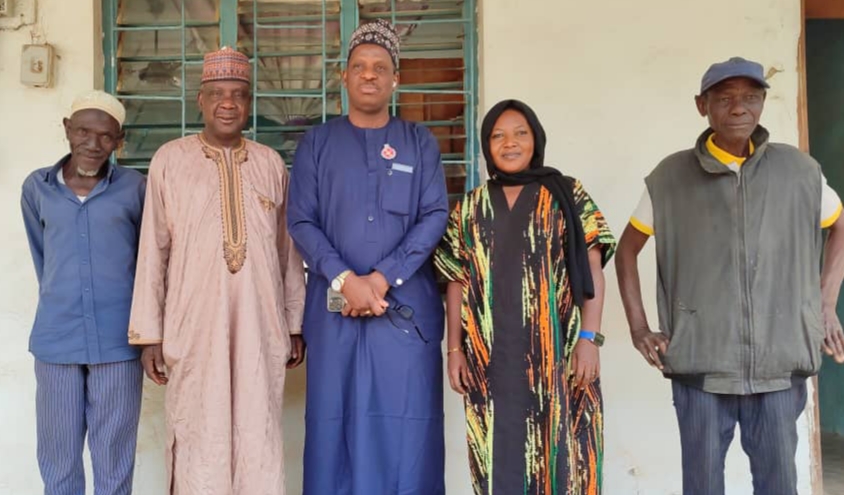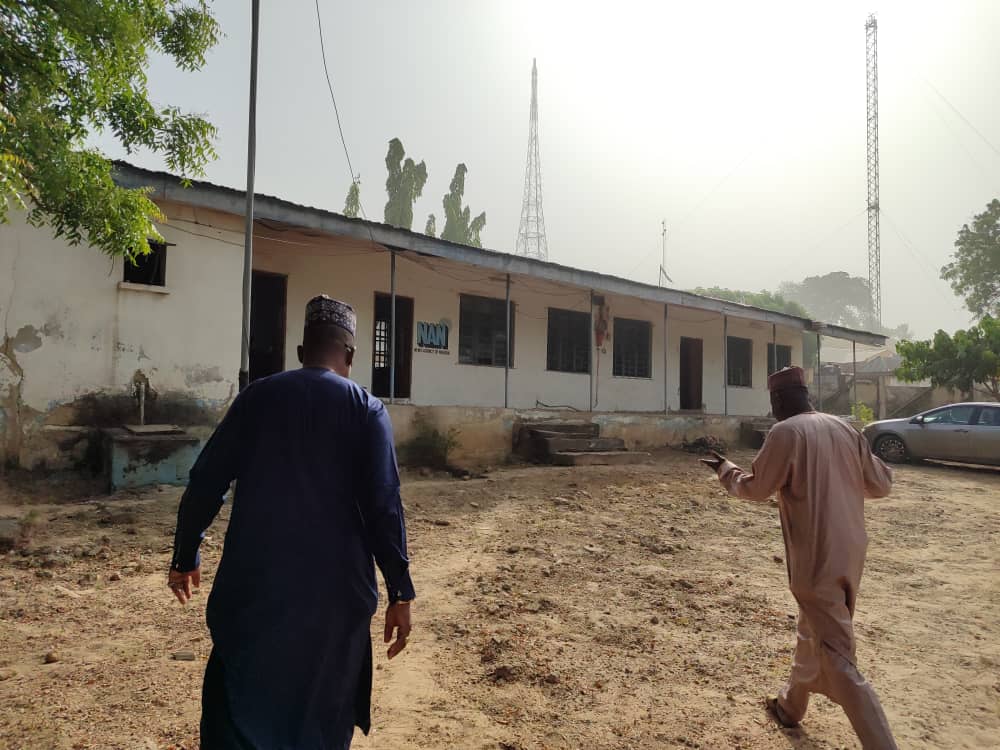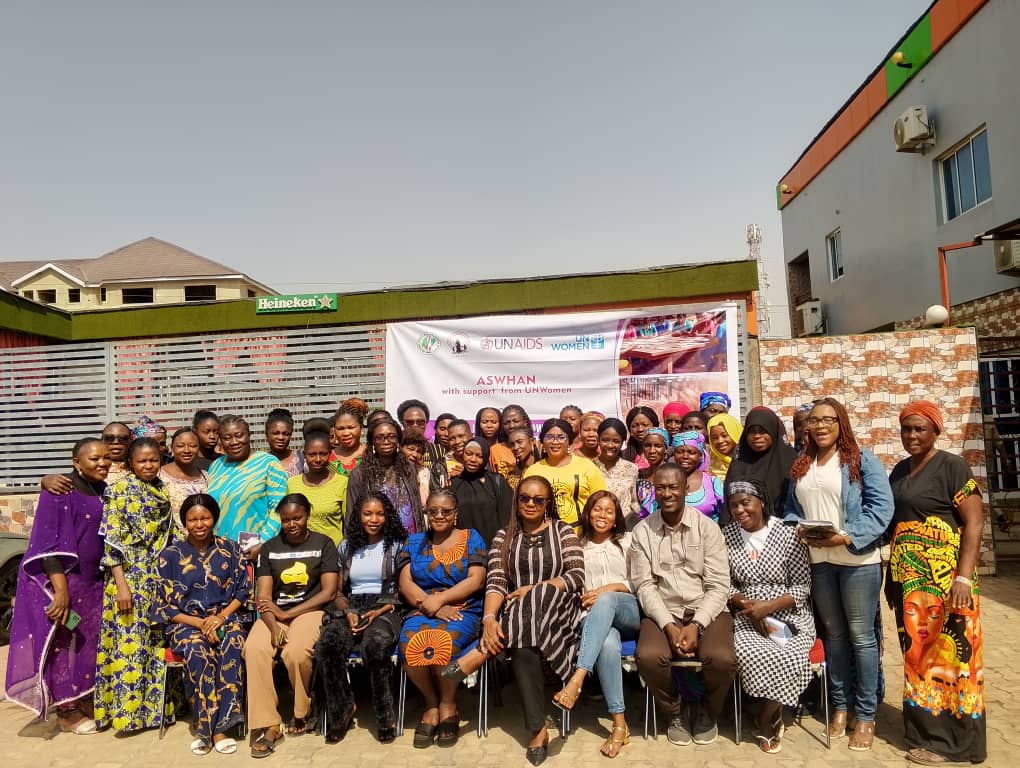N-HYPPADEC rehabilitates moribund Bida water works
By Mohammed Baba Busu
The National Hydro Electric Power Producing Areas Commission (N-HYPPADEC), says the rehabilitation works of the over 20 years moribund Bida water works has reached 90 per cent completion stage.
Dr Itilatyaa Daniel, the Director of Engineering and Technical Services in the commission, said this during the confirmatory test of five MVA transformers purchased by the commission at the site in Bida on Thursday.
Represented by Suleiman Ajibola-Adebara, the director said the rehabilitation would solve the perennial water scarcity in Bida and environs.
According to him, the five MVA transformers will be install soon to fasttrack commissioning of the project.
The News Agency of Nigeria (NAN) reports that the revitalisation of the Bida Mana Water Works has gained momentum with the supply of transformers by the commission to hasten power supply to the upgraded treatment plant.
The Head of Electrical Division of the commission, Ibrahim Adamu-Haruna noted that the transformers for the running of the treatment pumps purchased by Niger Government over time, had been test-run and confirmed satisfactory.
Adamu-Haruna said that the 11 KVA line was upgraded to 33 KVA, which was sufficient to run the pumps accordingly.
He said the plant was designed with 5,000 cubic metres capacity per hour, thereby alleviating the sufferings of an estimated two million beneficiaries in the area.
The contractor handling the project, Shafi’yi Yabagi said the project covered expansion of reticulation system, provision of more booster stations, treatment plant and reservoir, among others. (NAN) (www.nannews.ng)
Edited by Muhammad Lawal
Bridging Katsina’s immunisation coverage gap via music
By Zubairu Idris, News Agency of Nigeria (NAN)
Available statistics from the UNICEF shows that Nigeria accounts for over two million un-immunised children, including zero dose children globally.
According to health experts, zero dose children are children that lack access to or were never reached by routine immunisation service providers.
The UNICEF Chief of Kano Field Office, Mr Rahama Mohammed-Farah, said recently that there are over 500,000 unimmunised children in Kano, Katsina and Jigawa states, perhaps the worst hit region in the country.
He said this in Kano at the inauguration of a immunisation song entitled: “No More Zero Dose” aimed at motivating parents to give their children and wards more access to immunisation services.
Mohammed-Farah said the song featured some top music stars and UNICEF supporters from Nigeria, Mali, Chad, Cameroon and Guinea, like Cobhams, WAJE, Master Soumy, Sekouba Bambino and Ali Nuhu, among others.
“The #NoMoreZeroDose song sheds the light on the urgent and critical need for increased immunisation coverage in West and Central Africa.
“We, therefore, need to spread the message through this song of the importance of immunisation, and the imperative of getting every child under five fully immunised,” he urged.
According to him, in Katsina State alone, there are 171,491 zero dose children, pointing out that “zero dose children are at risk of vaccine preventable diseases, including polio”.
Experts urge UNICEF to produce the song in the local languages, especially the country’s three major languages namely: Hausa, Igbo and Yoruba, for it to make desired impact.
To change the narrative in Katsina State, the state government in collaboration with development partners such as UNICE continue to evolve strategies to ensure that all eligible children are immunised.
The Katsina State Governor, Dikko Radda recently said that: “vaccination is a fundamental right of every child”.
He said this at the inauguration of healthcare and routine immunisation coordination center, incinerator and distribution of 163 motorcycles to health workers.
Radda said healthy children were the foundation of any prosperous society, adding that it was the duty of his administration to eliminate all barriers to immunisation and other health services.
“With these motorcycles, our health workers will be better equipped to reach remote and un-served areas, ensuring that no child is left behind,” he said.
Mohammed-Farah explained that the UN institution supported Katsina government with the 163 motorcycles as part of the strategies to reach all eligible children across the state.
“They are part of the GAVI-funded Primary Healthcare Memorandum of Understanding (MoU).
“It is a three-year initiative aimed at strengthening Routine Immunisation (RI) and primary healthcare systems to reduce morbidity and mortality, amongst children,” Mohammed-Farah said.
Meanwhile, UNICEF in collaboration with Safe Space Humanitarian Initiative (SASHIN) of Katsina governor’s wife, Hajiya Zulaihat Dikko-Radda, inaugurated another strategy called: “Gender Mainstreaming,” popularly known in local parlance as: “Majalisar Rigakafi”.
Zulaihat said the initiative was aimed at increasing immunisation acceptance by engaging male parents in routine immunisation and other primary healthcare-related issues.
“Over the years, we have made remarkable progress in improving access to healthcare.
“However, some challenges remain low immunisation uptake, misconceptions about the vaccines, and limited access to primary healthcare services.
“It is evident if we are to succeed in overcoming these challenges, we must adopt innovative, community-focused strategies that leverage the collective power of our people,” she said.
She said the new strategy was a platform that empowers both men and women to engage in open informal discussions about immunisation, antenatal care, child nutrition, and other primary healthcare services.
“In many communities, women bear the primary responsibility for health of their families, yet, they face barriers such as lack of support from their male counterparts or cultural norms that limit their decision-making power.
“Another unique feature of this initiative is its reliance on informal settings where people feel comfortable and heard, whether is a conversation under a tree, in market square, or during a family gathering.
“These interactions create opportunities to share accurate health information, dispel myths, and inspire action,” Zulaihat said.
Speaking as a panelist at the event, Takudzuwa Kanyangara, UNICEF Gender Development Manager, said recent Demographic and Health Survey showed good news for Katsina state on immunisation uptake.
“The good news is that, in Katsina State, the rate of immunisation is higher than 45 per cent.
“Gender plays a crucial role in both polio and routine immunisation efforts, as men are often the decision makers in households,” she said.
Still, in a goodwill message, the UNICEF Chief of Kano Field Office, represented by UNICEF Health Specialist, Hajiya Saudat Basheer, believed that engagement of men and fathers would significantly improve the immunisation coverage.
“Our children should not be dying from diseases that are easily preventable with vaccines.
“Fathers and men have come together to help us achieve the goal of zero dose and polio-free Katsina State.
“Our vision is to scale up this initiative so that all men and fathers become committed members, dedicated to making a difference in improving immunisation coverage and supporting global polio eradication,” he said.
The Executive Secretary, Katsina State Primary Healthcare Development Agency (SPHDA), Dr Shamsudeen Yahaya, said the government engaged community health extension workers and midwives to boost healthcare services for women and children under the GAVI initiative.
Yahaya said that 1,260 community health influencers and promoters were trained to providing effective primary healthcare services, including routine immunisation in rural communities.
He further said the government rehabilitated 102 primary healthcare centres to boost healthcare services delivery for children and women, especially in rural areas across the state, among other.
Yahaya, during the distribution of the 163 motorcycles to health workers, identified insecurity as one of the major factors responsible for the law coverage of the immunisation in the communities affected by the menace.
He added that inadequate health workers was also hindering effective primary healthcare services delivery, as the state has only about 1,700 primary healthcare facilities.
“As we know, a lot of health workers are retiring, if we can have automatic replacement policy, it will go a long way to address human resources challenge in future,” he advised.
He also called for upward review of casual workers salary from N10,000 to at least N30,000 per month due to the current economic situation in the country.
The Commissioner for Health, Alhaji Musa Adamu, also said that health is among the priority sectors of the present administration in the state.
According to Adamu, the state government will continue to take measures to boost effective healthcare service delivery.
However, in spite these efforts, the sector encounter some challenges that affect immunisation coverage and effective healthcare service delivery in the state.
Stakeholders should partner to comprehensively address all factors militating against immunistion, child survival and maternal health, says a health expert, Abdulbasir Kabir.
Some of the factors, he said, are misconceptions, poverty, and lack of commitment from the health workers.
On his part, Malam Abdulkadir Waisu, a gender advocate, said sometimes, parents deny their children and wards access to immunisation if they reacted to the previous one they took.
Whatever the challenges maybe experts urge governments and their development partners to intensify immunisation campaign through religious leaders and traditional rulers.
They say doing so would increase immunisation coverage and make children healthier with other multipliers implications for their future. (NANFeatures)
**If used please credit the writer and News Agency of Nigeria.
More functional refineries ‘ll crash fuel prices – Expert
Assessing Yobe’s post-conflict economic recovery programmes
Assessing Yobe’s post-conflict economic recovery programmes
By Rabiu Sani-Ali, News Agency of Nigeria (NAN)
Yobe located in north-east Nigeria is being ravaged by the Boko Haram insurgency, desert encroachment and other environmental challenges, a trend inhibiting sustainable social and economic development of the state.
With an estimated population of 3.6 million according to 2022 official records, over 75 per cent of the people engage in farming and animal rearing.
A substantial number of the inhabitants are engaged in local commercial activities leading to proliferation of village markets across the state.
Trading activities mainly on agricultural produce and livestock, especially in Potiskum, Nguru, Geidam, Yusufari, Gashua and Damaturu attract entrepreneurs from neighbouring states, as well as Niger and Chad.
Potiskum is one of leading cattle markets in West Africa, which suffered the brunt of the insurgents’ attacks in the past 10 years.
However, Yobe is not faring well in terms of the much-needed Internally Generated Revenue (IGR) to stimulate infrastructure development to herald industrial and economic growth in spite of huge trade existing in major towns inYobe.
Yobe’s IGR in 2022 was N10.5 billion, making it one of the three lowest-performing states in Nigeria. The IGR has increased from N4.375 billion in 2018, to N8.515 billion in 2019, and N10.5 billion in 2022.
The improvement in IGR is attributable to the tax reforms being implemented by Gov. Mai Mala Buni since assumption of office in 2019.
To further build a sound foundation for rapid economic transformation, Buni initiated viable infrastructure development projects, agriculture and business support as well as youth and women empowerment programmes.
Postiskum

The programmes, an integral part of the post-conflict recovery process, are designed to provide livelihoods, create jobs, reduce poverty and enhance wealth creation in the society, while encouraging industrial growth through public private partnerships.
To actualise his drive to transform the state’s economy via improved trade, the government constructed four modern markets with 3,200 shops in Potiskum, Damaturu, Nguru and Gashua.
Each of the markets was designed with 800 shops; 28 stores, a police station, parking slots, dumping sites, road network, a fire fighing unit, an administration block, etc.
An entrepreneur, Hashim Bomoi, said the establishment of the markets significantly provided an enabling environment for businesses to thrive.
He said the gesture would also boost trading activities and improved state’s revenue base.
In 2023, the Yobe government expended several billions of Naira on procurement and distribution of fertilisers, inputs, and equipment to small holder farmers across the 17 local government areas of the state.
More than 17,500 farmers each received fertilisers, seeds, chemicals, a planter, a power tiller, and knapsack sprayer, while a fleet of tractors and harvesters had been launched under a subsidised hiring scheme, to encourage agric mechanisation and boost productivity.
To encourage productivity, agriculture value addition, processing and export of cash crops, the Buni administration accomplished yet another milestone project by constructing a cargo airport, to ease transportation of agricultural produce and woo investors to the state.

It has also completed the construction of a six-tonne per hour capacity sesame aggregation and processing plant in Machina town, while works on three other plants were at various stages of completion at Nguru, Potiskum and Damaturu.
Alhaji Kaigama Umar, Commissioner for Commerce, said that, “this is necessary because Yobe is a leading sesame producer in the country.
“The idea behind the establishment of sesame seed cleaning, processing and packaging factories was conceived by Mai Mala Buni shortly after assuming office.
“Factories like this accelerate industrialisation, which will help our farmers and enhance our IGR,” he said.
According to him, Yobe is the largest producer of sesame in the country, noting that the produce is being cultivated in a commercial quantity in Geidam, Yunusari, Nguru, Machina, among others.
He said sesame farmers in the areas would no longer have to travel to Kano to process their crops as the factory would be at their doorsteps.
“We are also inviting sesame farmers outside the state to come and take advantage of the facility,” he said.
The Buni administration prioritised promoting partnership with development partners, federal agencies and private sector to accelerate industrialisation of the state.

In this regard the state government has allocated 300 hectares of land to the Nigeria Export Processing Zone Agency (NEPZA), to support its activities, and establish its office close to the cargo airport.
“You should ensure efficient and speedy use of the land to enhance development.
“Government deliberately allocated the land to the agency close to the Cargo Airport, to stimulate trade and business activities in the state.
“You have great role to play in promoting export of agricultural produce including sesame seeds, gum arabic, livestock and other crops that are produced in great commercial quantities in the state,” Buni said while presenting Certificate-of-Occupancy to the NEPZA, Executive Secretary, Usman Bakori.
To further propel its development programme, the state entered into a similar partnership with the Small and Medium Enterprises Development Agency of Nigeria (SMEDAN), to enhance job creation for unemployed graduates.
Buni, who has expressed worry and shared the pain of unemployed youths, reiterated commitment to securing employment opportunities to the unemployed graduates, to enable them to meet the expectations of their families and live their lives with dignity and prosperity.
The government, therefore, began massive recruitment of unemployed university graduates, diploma holders, and National Certificate of Education graduates across the 178 wards in the state.
Buni believed that the youths trained by the state in various trades were not only gainfully employed but also employers of labour.
“This partnership occupies a very special place in the heart of our administration, and we are committed to secure more jobs for our youth.
“The government will explore the potential in each of the 17 local government areas to provide means of livelihood and economic prosperity to our youth,” he said.

Also, the Director-General of SMEDAN, Mr Charles Odii, said the agency would partner the state towards providing employment opportunities for unemployed graduates.
“SMEDAN will drive, stimulate and coordinate development of Micro, Small and Medium-scale Enterprises (MSMEs) in Yobe state, to promote self-sufficiency.
“The partnership will provide the benefitting graduates with skills to accelerate self-employment for economic prosperity,” Odii said during a visit to Buni.
While consolidating on the gains of partnership with SMEDAN, the Buni administration sealed another cooperation agreement with the Arab Bank for Economic Development (BADEA) on energy and agriculture development.
This followed successful negotiations, which focused on job creation and enhance security and infrastructure in the state.
The agreement seeks to encourage agricultural productivity, vocational training, infrastructural and energy development, as well as quality education and healthcare service delivery, and security to safeguard the environment.
Buni, who spoke at the signing of the agreement, said that, “we are passionate about agriculture being the major preoccupation of our people to improve food sufficiency, food security and economic development.
“Vocational training for our youth is another key sector to provide employment opportunities and economic growth in our reconstruction and recovery programme.
“The state government is also committed to improving the infrastructure to enhance socio-economic development in our quest to recover from the destruction by insurgency”.
He added that in spite of his administration’s huge investment in education, the sector still required more support in view of its capital intensive nature.
Dr Sidi Tah, the president of the bank, expressed satisfaction with the efforts made by the state government in the reconstruction, rehabilitation and recovery efforts after decades of Boko Haram insurgency.
“We are impressed with your efforts and commitment to improving the lives of your people, we are ready to partner with your state to improve on the achievements made,” the president assured.
Experts are of the view that the Yobe government needs to initiate comprehensive tax administration reforms, to block leakages and boost state revenue base, to sustain the feat so far achieved in the economic recovery process. (NANFeatures) (www.nannews.ng)
**If used please credit the writer and News Agency of Nigeria
Japa syndrome: ABUTH recruits 518 medical workers
By Mustapha Yauri
The Ahmadu Bello University Teaching University (ABUTH), Zaria, says it has concluded arrangements to engage 518 health professionals, to mitigate the impact of medical brain drain and enhance healthcare service delivery.
Prof. Ahmed Umdagas, Chief Medical Director of the hospital, said this in an interview with the News Agency of Nigeria (NAN) on Sunday in Zaria.
He said the hospital has a shortage of doctors, nurses, pharmacists and other health workers caused by the migration of healthcare professionals abroad, known as ‘Japa syndrome’.
Umdagas said the hospital had received over 7,500 applications at the expiration of the vacancy advertisement, while it got approval to recruit only 518 workers.
“We have completed the exercise and by the first quarter of 2025, the hospital will have additional 518 staff towards improving the human resources for health in the hospital.
“We believe that injecting this cohort of staff would greatly strengthen health outcomes in the facility,’’ he said.
On manpower development, Umdagas said the hospital trained 460 staff both local and overseas, geared towards improving health outcomes, adding that such training would improved in 2025.
According to Umdagas, the Industrial Training Fund (ITF) has trained staff members on better ways to improve patient care, adding that the facility was working towards strengthening partnership with key stakeholders to enhance health outcomes.
He said the hospital was collaborating with the University of Miami, USA, on the treatment of ovarian cancer, under which a research initiative would be conducted on 70 patients globally.
“Of the 70 patients ABUTH would assess 20 patients, 10 would be done at Bahamas and the remaining 40 would be assessed at the University of Miami’’. (NAN) (www.nannews.ng)
Edited by Bashir Rabe Mani
Stylish Aisha Buhari graces 2024 Calabar Carnival
HIV: UN, ASWHAN unveil women empowerment project
NAN MD promises improved working environment
By Rita Iliya
Malam Ali M Ali, Managing Director of the News Agency of Nigeria (NAN), has promised to improve the working environment for the personnel of the agency. .
He spoke on Saturday when he visited the agency’s Minna Zonal office to assess its situation.
Ali was received by Alhaji Mohammed Bababusu, Zonal Manager in charge of Niger, Kogi and Nasarawa.
He commended the zonal manager and members of staff for their resilience and dedication to work.
Ali reiterated his commitment to providing a conducive environment that befit the agency’s mandate, adding that: “I have seen the condition of the NAN Minna office, this structure is not befitting to staff of the agency to work.
“People need the right environment to work, and here is not the right environment. It is a shame that the agency still has structures like this.
“We will send our Engineers from Abuja to the Minna office to give us a professional assessment of what can be done.
“The agency would not leave any of its offices behind in terms of development.”

Ali said that a recent tour of offices in the North-East had provided valuable insights into the requirements for improvement.
The managing director also extolled the leadership of the zonal manager, saying, ”as the son of the soil, you are leveraging on your contacts for the glory of the agency.”
He, however, cautioned against joining local politics, warning that defaulters would be sanctioned, adding that, “NAN is a professional media organisation respected globally, and efforts were being made to reposition it”.
While reitrating commitment to the welfare of staff, Ali announced plans to establish a multimedia unit in the Minna office, deploy more workforce, and open district offices in Bida, Suleja, Kontagora and New Bussa.
He urged the staff to keep up the good work by focusing more on exclusive stories.

Earlier, Bababusu, thanked the managing director for the changes he has so far brought to the agency, particularly in the editorial department, adding that his achievements were visible across NAN offices.
“We have long wished for your visit to the NAN Minna office and I want to appeal for your regular visits to the zonal offices to address their challenges,” he said
Bababusu said that the Minna office required an overhaul, adding,” the current office space is not befitting.”
The zonal manager appealed for provisions to enable the zonal managers to periodically visit offices under their zones. (NAN)(www.nannews.ng)
Edited by Chidinma Agu/Bashir Rabe Mani
Port Harcourt refinery fully operational – NNPC
By Emmanuella Anokam
The Nigerian National Petroleum Company Limited (NNPC Ltd.), says the old Port Harcourt refinery is fully operational and preparation for Saturday loading operation is currently ongoing.
The NNPC Ltd. Chief Corporate Communications Officer, Olufemi Soneye said this in a statement on Saturday in Abuja.
Soneye advised members of the public to discountenance false media reports that the refinery which was re-streamed in November has been shut down.
He described such reports as the figments of the imagination of those who want to create artificial scarcity and rip-off Nigerians.
”The attention of the NNPC Ltd. has been drawn to reports in a section of the media alleging that the old Port Harcourt Refinery which was re-streamed has been shut down.
“We wish to clarify that such reports are totally false as the refinery is fully operational as verified a few days ago by former Group Managing Directors (GMDs) of NNPC.
“Preparation for the Saturday’s loading operation is currently ongoing,” he said.
The News Agency of Nigeria (NAN) recalls that the 60,000 barrels per day (bpd) capacity refinery, which attained its mechanical completion in 2023, began its truck-out of petroleum products on Nov. 26, following its rehabilitation.
The development signaled the commencement of crude oil processing from the plant and petroleum products delivery to markets.
The resumption of the refinery followed a lot of skepticism and criticism from some critics alleging that the rehabilitated refinery was a scam.
Amid the controversy, some renowned Nigerians, marketers and society of engineers among others had toured the refinery and confirmed that it is operational.
The refinery, which is the country’s oldest and biggest among the three government-owned refineries and located in the Niger Delta Region of Nigeria, began operation in 1965. (NAN)(www.nannews.ng)
Edited by Uche Anunne















